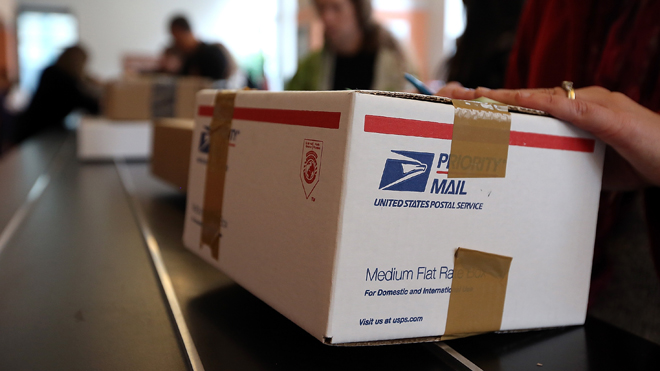
Remembering D-17
WASHINGTON, D.C. – Fifty-two years ago, as our country recovered from its near death experience in the Cuban Missile Crisis, the U.S. government cut off direct mail service to the island. Although letters could still pass from Miami to Havana, so long as they flowed through third countries, the ban on direct postal service was just a small part of the hefty regime of sanctions that became only more harsh and severe over time.
[This] week in Washington – and we imagine other places as well – there will be a nice party to celebrate the diplomatic breakthrough we call D-17, and the year in which the governments of Cuba and the United States acted like adults and talked to each other respectfully.
Yes, this was long overdue and yes, civil behavior was about the least that a citizen of either country could have asked of his government. But, when you think about what came before December 17, 2014, and what happened after, this year stands out like a Chanukah candle, a shining beacon of light.
For five decades, everything about our policy toward Cuba was about getting the Castro family to cry uncle. We tried to kill them and, when that failed, we sought to incite an insurrection among Cubans who we tried to make hungry and more desperate hurting them with our sanctions.
We didn’t just cut off their mail. We cut off direct phone service. We divided Cuban families by imposing stringent travel sanctions; just a decade ago, bereaved families couldn’t even make the trip to say goodbye to a lost loved one.
No petty slights were held back. We denied visas to Ibrahim Ferrer of the Buena Vista Social Club, guitarist Manuel Galvan and other musicians to keep them from coming to our country to pick up their Grammy Awards, calling them “detrimental to the interests of the United States.”
We heaped disdain on the Cuban doctors who the Castros offered us to treat the ill and injured after Hurricane Katrina. Such disdain, our old policy never considered the notion that Cubans might want to be left alone to write a new future for themselves.
We did all of this and more, year after year, and the system we wanted to replace so badly never budged.
Now, we have a new policy. It isn’t perfect. It’s pentimento – most of the new paint boldly covers over what we used to do though, from time to time, we can still see trace evidence of the old policy (#Radio/TVMartí, #CMPP, etc.). This new policy is a lot better than what it was, and certainly doesn’t come with the sense of shame we feel about a political discourse that even considers putting the religious backgrounds on the visa papers of desperate migrants.
This policy is about opening real communication – not just direct mail service, but also direct calls, cellphone roaming in Cuba, more trade and travel and more access to the Internet for Cubans because our agreement with President Castro included support for Wi-Fi hotspots.
It’s also about open embassies, and real diplomacy. [Last] week, U.S. and Cuban negotiators started addressing the billions of outstanding compensation claims for expropriated property and damage from the embargo.
One expert told the Washington Post, “it was a positive sign that the sides were even talking about the issue. It’s the first time the two countries are going back to look at this history and try to sort out a system for fixing it.’ ‘You don’t have this conversation if you haven’t built some mutual trust and respect,’ he said.”
We’re told there are more agreements on the way on bigger ticket items, like the restoration of normal airline service between our countries, and more talks to take place on law enforcement, fugitives from justice in both countries, and human rights.
It’s also about sticking to our beliefs. To their credit, our diplomats never let their knees buckle when pro-sanctions hardliners in Miami manufactured the lie that Cuban troops were driving Russian tanks in Syria, and they certainly haven’t called to close the border despite the upsurge in Cuban migration through Central America. To its credit, our State Department stood up straight on International Human Rights Day to highlight our disagreements with Cuba on free expression and to criticize the arrests of Cubans who sought to express themselves on that day.
Can anyone think of an alternative? Not even the geniuses at the Washington Post, who stubbornly insist that President Obama is being played by Raúl Castro, have offered one suggestion that could have brought us this far. All of this can be taken away, of course, by next year’s election. That’s a risk that should focus both governments on obtaining more results. There’s a lot more work, hard work, left to do.
It’s a stretch to think the U.S. and Cuba will emerge from this normalization process as allies. We were adversaries and now, after a year of living under a policy of engagement, the U.S. and Cuba have built enough respect and trust to become governments the other can work with. What a great change and sign of hope for the future.
The last year has been better, magically better than the previous and quite painful 55. That alone is something worth celebrating. So, on Thursday night, raise a glass, have a mojito, hug a friend.
Oh, and when that letter from Havana gets delivered, don’t forget to thank December 17.
(From Cuba Central)

